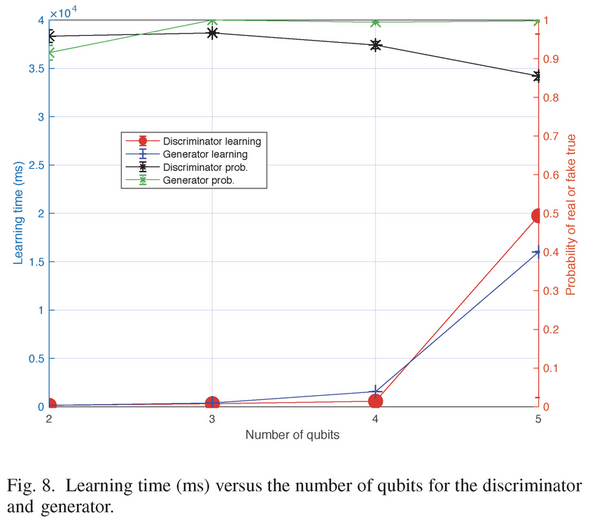Faking and Discriminating the Navigation Data of a Micro Aerial Vehicle Using Quantum Generative Adversarial Networks
We show that the Quantum Generative Adversarial Network (QGAN) paradigm can be employed by an adversary to learn generating data that deceives the monitoring of a Cyber-Physical System (CPS) and to perpetrate a covert attack. As a test case, the ideas are elaborated considering the navigation data of a Micro Aerial Vehicle (MAV). A concrete QGAN design is proposed to generate fake MAV navigation data. Initially, the adversary is entirely ignorant about the dynamics of the CPS, the strength of the approach from the point of view of the bad guy. A design is also proposed to discriminate between genuine and fake MAV navigation data. The designs combine classical optimization, qubit quantum computing and photonic quantum computing. Using the PennyLane software simulation, they are evaluated over a classical computing platform. We assess the learning time and accuracy of the navigation data generator and discriminator versus space complexity, i.e., the amount of quantum memory needed to solve the problem.
PDF Abstract
